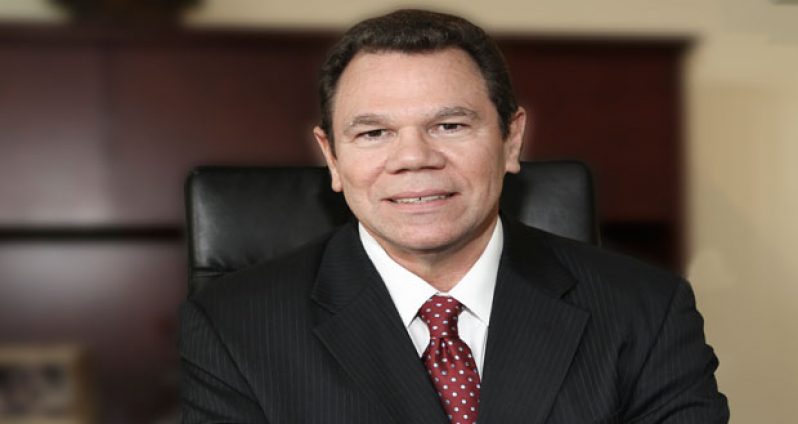THE Board of Governors of the Caribbean Development Bank have re-elected Dr. William Warren Smith to a second five-year term as president. This decision was confirmed on November 6 last, with the new term officially beginning on May 1, 2016, the CDB said in a statement. The Caribbean Development Bank represents the 27 member countries of the regional multilateral financial institution.
Dr. Smith was first elected President of the CDB on October 29, 2010, and assumed office on May 1, 2011. At that time, many of the Bank’s borrowing member countries (BMCs) were dealing with a myriad of highly complex development problems, made more acute by the Great Recession of 2008. It was evident that recovery would require extraordinary effort, informed by new thinking and approaches to Caribbean development. Operationally, some aspects of the Bank’s business model required adjustments that would increase the CDB’s development effectiveness and responsiveness to the changing needs of its members.
Dr. Smith, the CDB’s fifth president, committed to making the Bank a more creative and reliable partner, responding effectively to countries’ needs to build resilience against external shocks. Improving responsiveness meant strengthening the CDB’s internal governance; introducing additional measures to facilitate greater transparency and accountability; portfolio diversification, and improving operational efficiency. Other reforms included: establishing a centralised Office of Risk Management; a new independent Office of Integrity, Compliance and Accountability; and upgrading the Internal Audit, Independent Evaluation, Corporate Communications and Information Disclosure functions of the Bank.
Throughout the period, the CDB has actively promoted private sector-led growth and stability by assisting BMCs to design, finance and implement robust macro-economic programmes. The Bank has also been encouraging measured debt relief for small island developing Caribbean states which demonstrate willingness to embrace the requisite fiscal and structural reforms.
As a way of equipping countries to confront the ongoing threat of climate change, CDB has sought accreditation to the Green Climate Fund and the Adaptation Fund. Concerted effort has also been made to identify partnerships and funding for suitable climate resilience projects, especially in the areas of renewable energy, energy efficiency, and climate adaptation.
The Bank has been encouraging countries to improve competitiveness through energy diversification, which includes accessing indigenous, renewable sources. Much support has been directed to supporting Eastern Caribbean States’ exploration of their geothermal energy potential. To lead by example, CDB has undertaken further green initiatives at its head offices, which include the installation of a solar PV plant that would generate 20% of the Bank’s electricity needed.
Looking ahead to the next five years, Dr. Smith maintains that strengthening economic and environmental resilience to safeguard growth, while driving down poverty in Caribbean countries, will remain paramount. He noted that the Caribbean’s development agenda will be informed by the new sustainable development goals of the global community.



.jpg)








